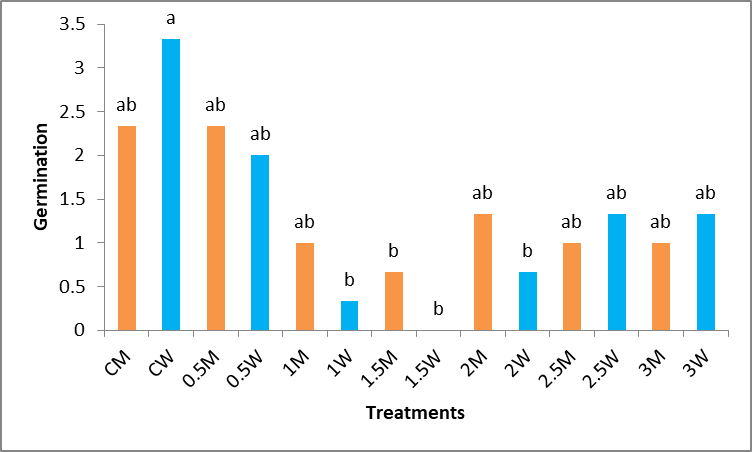Determining Allelopathic Potential of Anethum graveolens to Conrol Chenopodium album
Keywords:
Allelopathic, Anethum graveolens, Chenopodium album. bioherbicide, weed control, aqueous extract, methanolic extract, seed germination, foliar spray, sustainable agricultureAbstract
Weeds pose significant challenges in agriculture by reducing crop yields. Traditional herbicide use, while common, is often economically inefficient, environmentally polluting, and potentially carcinogenic. This study investigates the allelopathic potential of Anethum graveolens L. (dill) to control Chenopodium album L. (Bathua), a fast-growing annual weed from the Chenopodiaceae family. Various concentrations of aqueous and methanolic extracts from A. graveolens seeds and shoots (control, 0.4%, 0.8%, 1.2%, 1.6%, and 2.0%) were tested on C. album seed germination using a Petri plate assay. The 1.5% aqueous seed extract of A. graveolens significantly reduced C. album germination by 99%, outperforming shoot aqueous (64%) and methanolic extracts. In foliar spray bioassays, aqueous and methanolic extracts (control, 4%, 8%, 12%, 16%, and 20%) were applied to one- and two-week-old C. album seedlings at seven-day intervals. The 16% concentration notably reduced fresh plant weight by 51% after the first week and 75% after the second week. In pot bioassays, a 2% concentration (out of control, 0.5%, 1%, 1.5%, 2%, 2.5%, and 3%) significantly decreased shoot weight (-83%), root weight (-74%), and shoot length (-65%). These findings highlight the potential of A. graveolens as a bioherbicide, offering an eco-friendly and cost-effective alternative for weed management in agriculture



















